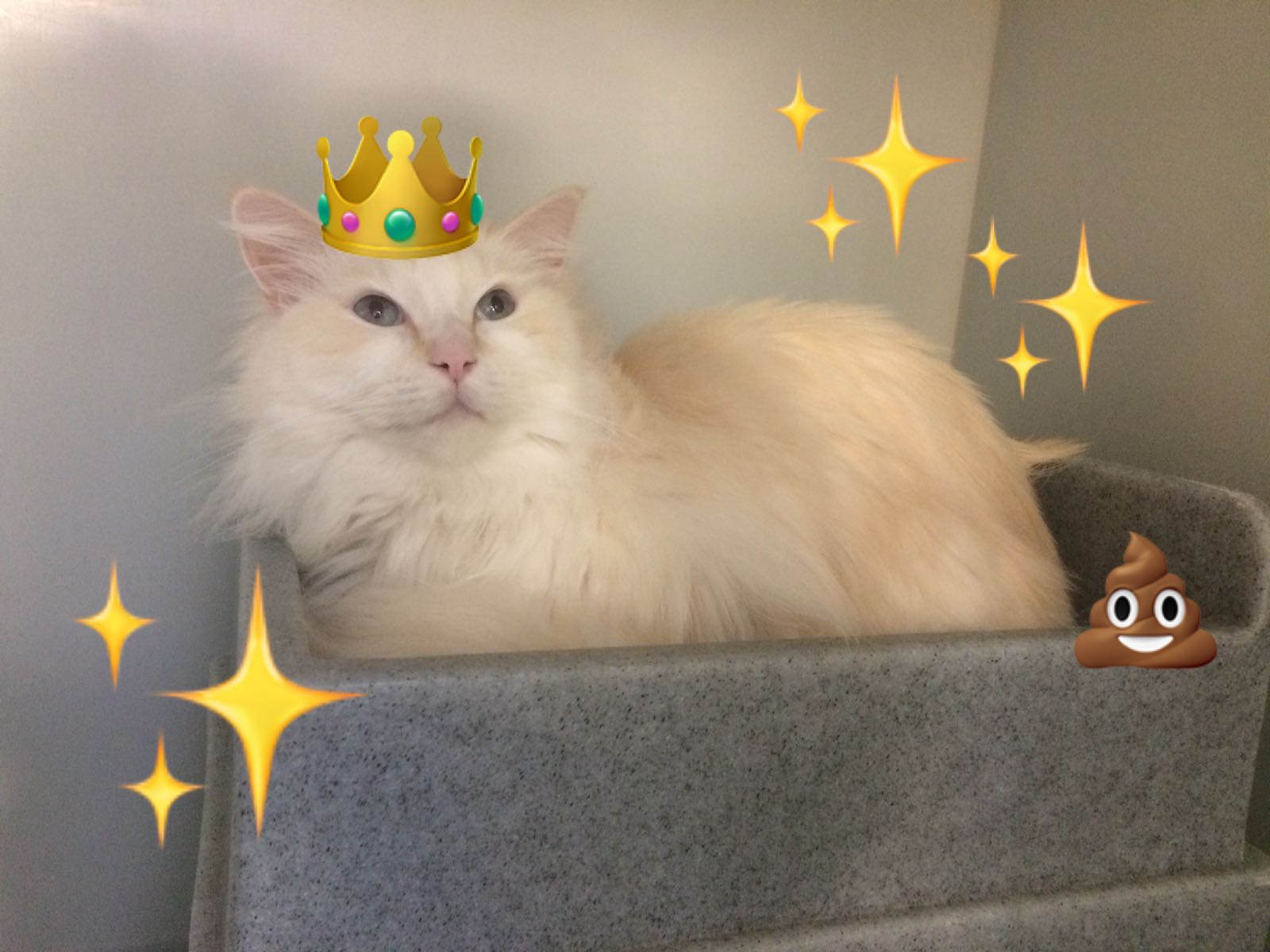- Joined
- Jun 14, 2018
- Messages
- 3
- Purraise
- 1
Hi all,
New to this forum, just looking for some advice on what to expect day to day!
We’ve adopted a beautiful 5 year old fluffy boy who has IBD, and he’ll be coming home with us on Saturday.
He has IBD, which we’ve now done a lot of research into so have some information on what it’s all about, causes, symptoms etc.
What we can’t find information on isn’t what to expect day to day!
The people at the cat rescue centre said he’s been absolutely fine since he’s been there (2 months) and he’s already on special food that won’t irritate his condition.
His last owner gave him up because she was relocating to Australia, not because of the IBD.
Apparently his is also caused by stress, which isn’t surprising considering he was kept in a tiny flat and taken out on a lead.
What we’re unsure of, is what to expect day to day - is he likely to have accidents? Is he likely to make it to the litter tray / garden? Should we be letting him out into the garden? I hate the idea of keeping him cooped up.
And more importantly, what is likely to happen long term? Will his condition deteriorate? Will he end up needing medication?
Please, any experience and advice would be so appreciated - we want to make sure we can give this boy the right home!
Joanna x
New to this forum, just looking for some advice on what to expect day to day!
We’ve adopted a beautiful 5 year old fluffy boy who has IBD, and he’ll be coming home with us on Saturday.
He has IBD, which we’ve now done a lot of research into so have some information on what it’s all about, causes, symptoms etc.
What we can’t find information on isn’t what to expect day to day!
The people at the cat rescue centre said he’s been absolutely fine since he’s been there (2 months) and he’s already on special food that won’t irritate his condition.
His last owner gave him up because she was relocating to Australia, not because of the IBD.
Apparently his is also caused by stress, which isn’t surprising considering he was kept in a tiny flat and taken out on a lead.
What we’re unsure of, is what to expect day to day - is he likely to have accidents? Is he likely to make it to the litter tray / garden? Should we be letting him out into the garden? I hate the idea of keeping him cooped up.
And more importantly, what is likely to happen long term? Will his condition deteriorate? Will he end up needing medication?
Please, any experience and advice would be so appreciated - we want to make sure we can give this boy the right home!
Joanna x



 Enjoy your new best buddy!
Enjoy your new best buddy! 


 What are you feeding your cat?
What are you feeding your cat? . There were a few early bad days: diarrhea, nausea, etc. He was on 4 different medicines for awhile. I found that keeping a log of everything (food fed, when the meds are given, body weight, when he poops, how the poop looks, etc) helps make it easy to see patterns. That's how I discovered early on that chicken is a no-no for my cat.
. There were a few early bad days: diarrhea, nausea, etc. He was on 4 different medicines for awhile. I found that keeping a log of everything (food fed, when the meds are given, body weight, when he poops, how the poop looks, etc) helps make it easy to see patterns. That's how I discovered early on that chicken is a no-no for my cat. The vet will determine the proper dose for your cat.
The vet will determine the proper dose for your cat.